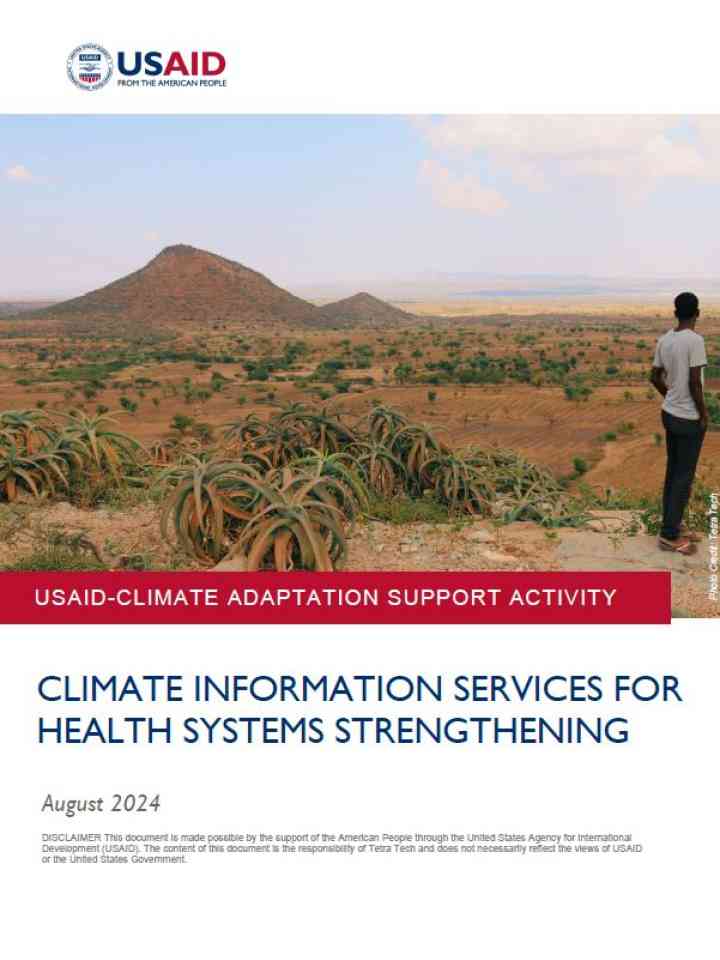Climate information services for health systems strengthening
This technical report explores the significant potential of Climate Information Services (CIS) to support climate adaptation within health system strengthening (HSS) initiatives. There is an urgent need to prepare health systems to respond to the changing intensity and frequency of climate-related risks. Integrating climate impacts into health decision-making has the potential to transform health systems and responses by informing the distribution and redistribution of health workers, services, supplies, and resources to adapt to changing epidemiology, environments, and new threats. Harnessing CIS is a strategic imperative and a commitment to future-proofing global health investments.
To address challenges and maximize the potential of CIS, the report offers recommendations, resources, and a reference guide for USAID staff. Key recommendations include:
- Policy coordination and governance: Strengthen local, national, and regional agencies and actors to co-create, provide, and use climate services to support climate-informed decision-making. Promote cross-sectoral collaboration for integrated decision-making to overcome structural, financial, and technical barriers.
- Capacity building: Invest in local capacity to advance research, innovations, and the development of the skilled multi-disciplinary teams needed to enable CIS use in the health sector and drive systems change.
- Communication and dissemination: Engage with end-users to tailor and improve CIS to ensure relevance and seek opportunities to institutionalize and localize CIS for HSS.
- Operational services: Support efforts to harmonize data and programs to ensure information can be mainstreamed.
Explore further
